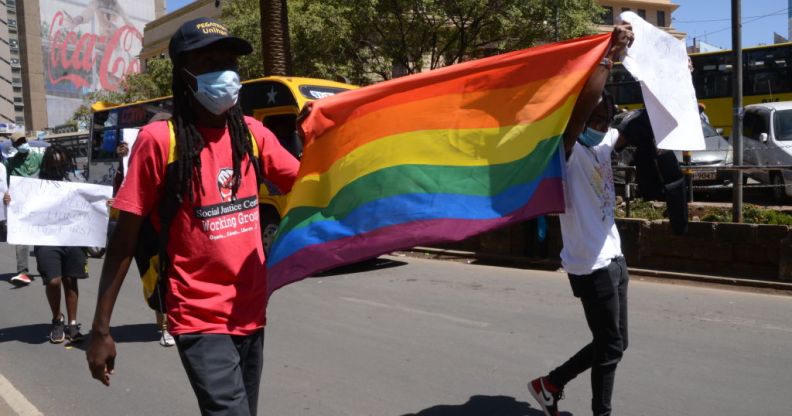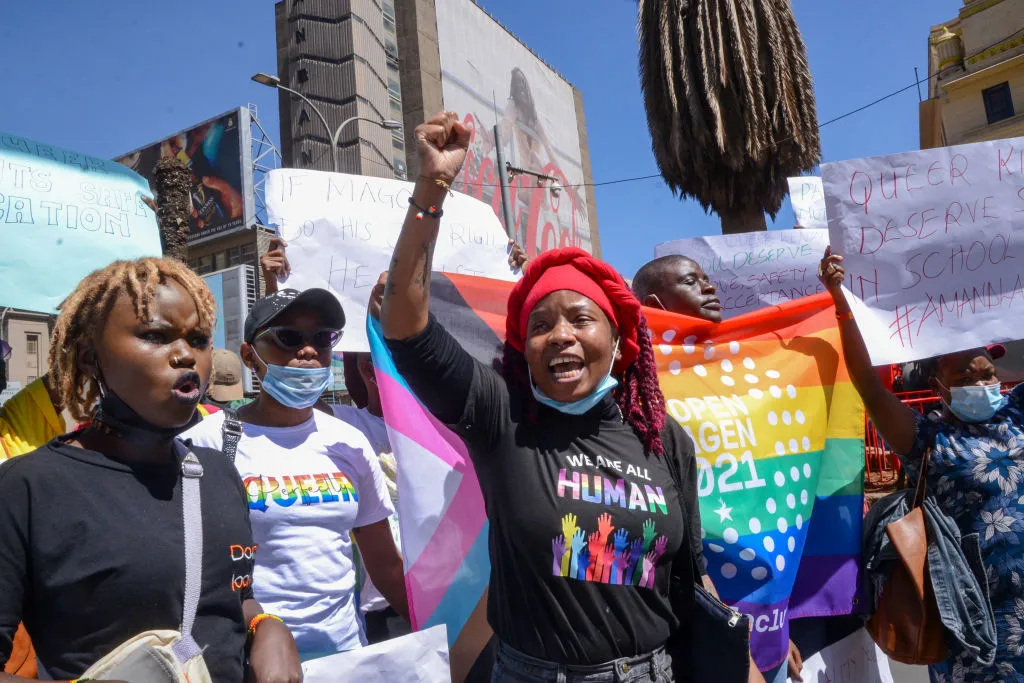TikTok reportedly in talks with Kenyan government to remove LGBTQ+ content

LGBTQ content may soon be blocked for Kenyan TikTok users. (John Ochieng/Getty)
TikTok is reportedly in talks with the Kenyan government to block local access to all LGBTQ+ content.
In order to comply with Kenya’s strict censorship and anti-LGBTQ+ laws, the popular video-streaming app is drawing up framework to prevent specific content from reaching Kenyan users, the Washington Blade reports.
The African state has criminalised homoesexuality and consensual same sex acts – the latter of which carries a maximum penalty of 14 years imprisonment.
According to the Kenya Film Classification Board, LGBTQ+-specific content is a “restricted” category of content because it glorifies, promotes, and normalises homosexuality against the law.
Already, some Kenyan TikTok users have had accounts deactivated and their content demonetized for sharing content that is deemed “inappropriate or restricted.”

Now TikTok is reportedly working to develop AI tools that would detect similar content and deactivate users who post it.
“A draft framework of the content regulation is being worked on by a joint team and it will be ready by the end of this month,” an official familiar with the discussions btween TikTok and the Kenyan government told the publication.
“The larger regulatory framework will address specific content like LGBTQ, explicit and terrorism materials shared on TikTok.”
The official noted that the tool has already “significantly reduced” such content on Kenyan TikTok in the last few weeks.
There is also reportedly a “national training program” being developed that will “empower” Kenyan users to create and post “positive” content.
This move to censor LGBTQ+ content on TikTok is a result of petitioner Bob Ndolo, who wrote to the National Assembly in August calling for the app to be banned in Kenya altogether, warning of content on the platform that was a “serious threat to the cultural and religious values of Kenya.”
When Ndolo’s petition gained some traction, it received heavy pushback from Kenyan TikTok users – many of whom make money by posting on the app.
They asked that, rather than banning the app entirely, regulatory framework would be put in place to block the so-called offensive content.

It is understood that this is what prompted Kenyan President William Ruto to meet with TikTok CEO Shou Zi Chew to discuss content regulation.
It’s likely in TikTok’s best interest to keep Kenyan officials happy since, accordinig to a 2023 survey, Kenya is the global leader in TikTok usage.
The survey, from Reuters Institute, found that 54 per cent of Kenyan users engage in TikTok content, and 29 per cent specifically rely on it as their source of news.
And TikTok isn’t the first content provider to agree to LGBTQ+ censorship in Kenya.
Earlier this year, Netflix signed an agreement with the country’s government to stop streaming LGBTQ+-specific movies.
Other streaming services are also being targeted by the Kenya Film Classification Board
This crackdown on LGBTQ+ content in Kenya comes as the country considers a new Family Protection Bill that would criminalise any form of promotion of LGBTQ+ activities with at least ten years in prison or a hefty fine.
It would also prosecute anyone found guilty of performing same-sex acts to a minimum of 14 years behind bars.
How did this story make you feel?

